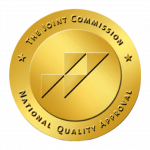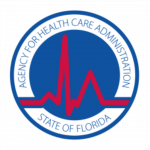Forgiveness is a simple behavior, yet it can be so complex. Forgiveness in recovery is a perfect example of how allowing yourself to forgive yourself is a hard task. However, this is essential for the recovery process. Allowing yourself to heal and start fresh all stems from forgiving yourself and not focusing on the past.
Holding on to the past and building up resentment is extremely unhealthy. In recovery, learning to not only forgive yourself but others who have wronged you allows for growth and self-awareness.
Perhaps you experienced abuse, or peer pressure which ultimately drove you to drink or try certain substances. Holding onto these resentments doesn’t allow you to completely break free from your past. Thus, in order to forge a path forward, forgiveness in recovery is required.
The 7 steps to true forgiveness are used in the recovery process, however, can be used in everyday life. Everyone should practice these tools to learn how to allow themselves to properly heal and move on.
Acknowledge
Just as we are told to acknowledge we have a problem, acknowledging why we are hurting is the first step to true forgiveness. Once you leave recovery, the world can seem a lot lonelier than you imagined. This is because you are used to constantly being surrounded by counselors and therapy groups. When someone feels lonely and allows themselves to isolate, self-pity begins to creep in.
Acknowledging this hurt and seeking out aftercare services, like group couseling and sponsor groups, is a great way to keep yourself motivated and on the right path.
Consider
The second step is to consider. Consider how your past and the pain it has caused you has affected you. The term “consider” involves you thinking before acting or deciding. It helps us better understand why we are feeling the way we do about treatment and our addiction. Instead of feeling bad for ourselves, or blaming yourself, consider the accomplishments you have made and how far you have come.
Accept
One of the most important steps to forgiveness in recovery is acceptance. Accepting that you can not change the past is an important part of forgiveness and healing. Change begins with acceptance. Dwelling on the misfortunes of your past and the mistakes you made is hindering you from moving forward. This is why acceptance is so important.
Determine
After you have accepted that you can not change the past, determine if you are ready to move forward. Are you ready to put in the work it takes to overcome your addiction and heal? This is the step that determines whether you are ready to forgive and grow or continue to live stagnantly.
Repair
Once you have determined you are ready to begin moving forward it is time to repair. Repair the relationships that may have been broken. Repair your self-worth and how you view yourself. This can be one of the most difficult things to repair because forgiving ourselves is hard.
The first person we tend to blame is ourselves and this reaction is inevitable. However, learning how to accept that we are human and make mistakes and grow from these mistakes, is a step in the right direction.
Furthermore, repairing relationships does not always mean restoring. Just as forgiveness does not mean forgetting. It is okay to repair and forgive but choose to no longer continue a friendship or relationship with that person.
Learn
Learning what forgiveness means to you is one of the final steps. Oftentimes, we forget that forgiveness is not only to benefit others but is beneficial for allowing ourselves to heal. Learning how to give forgiveness a new meaning is a tool you can use throughout your entire life.
Whether forgiveness now means letting go, giving yourself closure, or a fresh start to a new beginning, learning to change the meaning helps us welcome the thought of forgiveness a lot easier.
Forgive
Finally, the last step is to forgive. Whether forgiving yourself or someone else this step is the final puzzle piece to begin your next chapter. In recovery, forgiving yourself for your past mistakes helps build the confidence to move forward in your sober journey. No more making excuses for your past, time to forgive and pave the pathway to a successful and healthy life.
Forgiveness and Recovery
If you are ready to walk away from your past and begin your journey to recovery contact the Harm Reduction Center. Harm Reduction Center is a private healthcare facility built on empowerment, integrity, and perseverance. We are here to help you work through the steps of recovery through acceptance, forgiveness, and making the choice for a better future.














